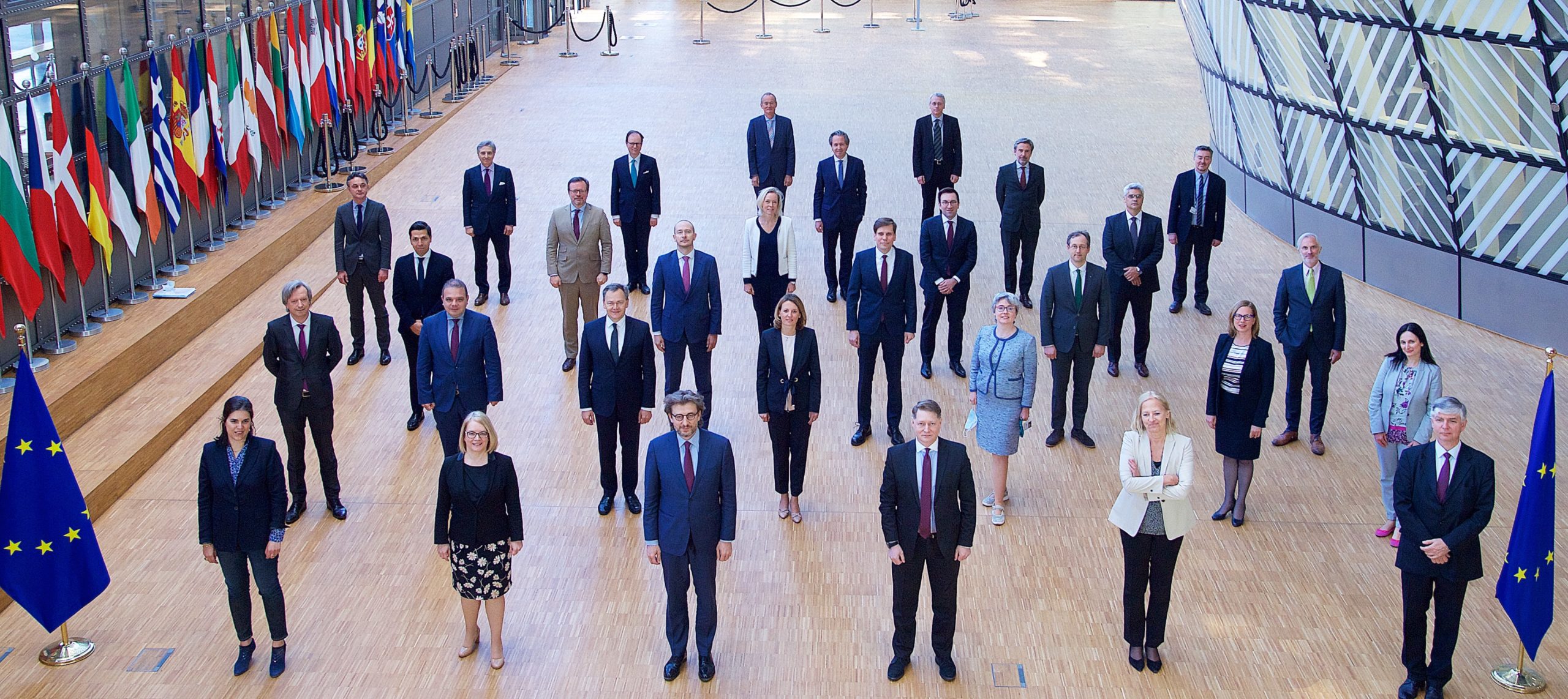Which organisation really runs the European Union? Is it the European Parliament? The European Commission? The European Central Bank?
A useful rule of thumb is that the more visible and democratically accountable the body, the less power it holds.
Therefore the directly elected European Parliament is by the far the weakest of the major EU institutions. The Commission clearly has more power than the Parliament — and is made up of appointees. However, these are high profile appointees. When they screw up badly — as they have over the EU’s vaccine procurement programme — their failures are politically embarrassing.
This combination of visibility without direct democratic accountability therefore puts a limit on how much power someone like Ursula von der Leyen, or her predecessor Jean-Claude Juncker, can be given. Though it varies from country to country, there is a point at which voters would demand the restoration of effective democracy (as British voters did five years ago).
To avoid any further crises of this kind, non-accountable power in the EU needs to be wielded invisibly. Hence the importance of bodies like the European Central Bank, whose inner workings are much less obvious to the public than the fumblings of the Commission.
The most invisible body would be one that no one has heard of. And that’s very nearly true of the Committee of Permanent Representatives, also known as COREPER. This is the grouping that brings together the top diplomatic representatives of each member state to the European Union. In other words, it is a committee of ambassadors and deputy ambassadors.
Writing for Politico, Jacopo Barigazzi provides some much needed insight into this important, but almost unknown, power structure. Indeed, it is by its very nature unknowable. After all, this is a diplomatic organisation that conducts itself according to the discreet practices of international diplomacy. Thus, as Barigazzi describes it, “the committee meets behind closed doors and publishes only sparse summaries of its deliberations.”
COREPER’s role has been greatly enhanced by the pandemic. Emergency decisions have had to be made at a pace that the Commission’s lumbering bureaucracy clearly can’t cope with. Thus it has fallen to the diplomats — used to hammering out agreements against deadlines — to take the reins.
Perhaps as the pandemic subsides, we’ll see the natural order of things restored — with ministers instructing diplomats not the other way round. However, with “ever closer union” the need to make important EU-wide decisions in real time can only increase over the long-term. Furthermore, national governments may acquire a taste for doing politics behind a veil of diplomatic secrecy.
Decisions made through the European Council (i.e. ministers from the member states) are already criticised as lacking the transparency and accountability that these politicians would face at home. However, COREPER adds a thick layer of additional screening from democratic oversight.
In Barigazzi’s words, it is the “black box within the black box”.











Join the discussion
Join like minded readers that support our journalism by becoming a paid subscriber
To join the discussion in the comments, become a paid subscriber.
Join like minded readers that support our journalism, read unlimited articles and enjoy other subscriber-only benefits.
Subscribe